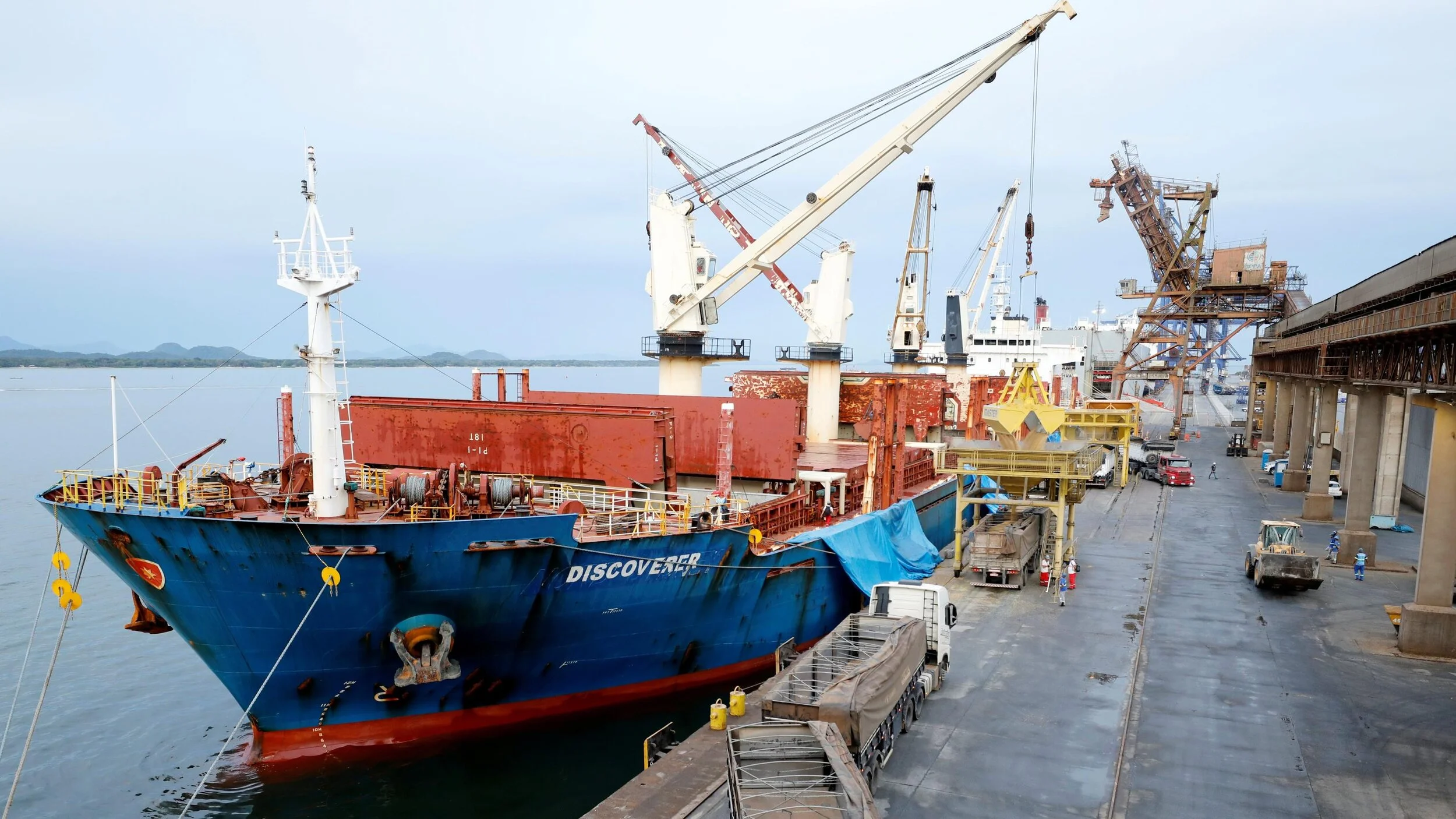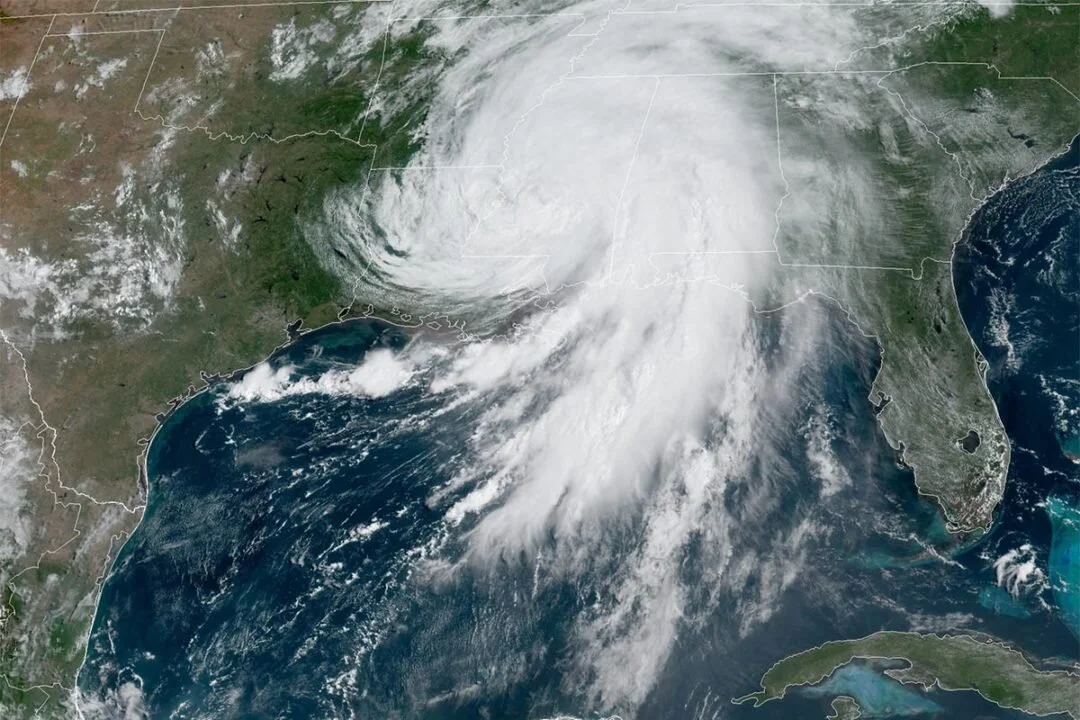Louisiana Grain Terminal Reopens After Hurricane Ida as Nicholas Rains Arrive
Another grain export terminal near Louisiana's Gulf Coast shuttered for two weeks by Hurricane Ida restarted operations this week even as heavy rains from Tropical Storm Nicholas battered the region on Tuesday.
Global grain trader Cargill Inc said it had reopened its Westwego, Louisiana, grain export terminal and on Monday unloaded its first grain barge since Ida came ashore on Aug. 29 and crippled shipments from the busiest U.S. grain export hub.
Cargill is the latest major grain trader to revive export operations after Ida devastated the region's power grid and damaged some of the nearly dozen grain terminals dotted along the Mississippi River from Baton Rouge to the Gulf of Mexico.
Read More
Asian Crop Importers Brace For Delays After Hurricane Ida Hits U.S. Export Hub
Asia's grain and oilseed buyers are set to face shipping delays of at least one month after Hurricane Ida damaged key export terminals around the U.S. Gulf Coast, two traders and one miller said. The slowdown in supplies is likely to stoke food inflation fears for price-sensitive consumers in Asia, where many importers have already drawn down crop inventories after having been forced to curb purchases amid volatile crop prices and COVID-related supply disruptions this year.
Read More
Coast Guard Opens Lower Mississippi River to all Vessel Traffic
On Sept. 4, the U.S. Coast Guard (USCG) reported that Coast Guard captain-of-the-port, New Orleans, Capt. Will Watson has opened the Lower Mississippi River to all vessel traffic in New Orleans and key ports throughout Southeast Louisiana Friday following Hurricane Ida.
After the successful removal of several power lines obstructing the waterway due to a downed transmission tower near mile marker 106.5 and a survey of the ship channel in key areas of concern, the waterway has been deemed open for all marine traffic, noted the news release.
Read More
Grain Export Flow Expected To Shift From Ida Damage
Grain companies with terminals along the lower Mississippi River are looking at shifting more of their committed grain and soybean exports to ports in the Pacific Northwest while damage assessments and repairs begin in earnest following Hurricane Ida.
Hurricane Ida brought significant wind damage across New Orleans and surrounding areas. The timeframe for resuming operations is unknown due to uncertainty of when electricity will be restored. Officials in some Louisiana parishes say some towns along the coast are uninhabitable.
Read More
Hurricane Ida Shows the Fragility of Agricultural Supply Chains
Hurricane Ida barrelled into the Louisiana coast on Aug. 29, bringing 150 mph (230 kph) wind gusts, torrential rain, and widespread power outages to New Orleans and the surrounding region. It also brought all shipping traffic through the mouth of the Mississippi River to a grinding halt, snarling supply chains at the start of a crucial period for US grain exports.
The US Coast Guard closed the Mississippi to barge traffic ahead of the storm on Aug. 28, and the New Orleans International Airport shut down passenger and cargo traffic on Aug. 29. The Port of New Orleans closed its container shipping terminals on Aug. 30 and stopped all “breakbulk operations,” which refers to moving cargo from large ocean freighters to smaller barges for transport up the Mississippi River.
Read More
Lowest Grain Prices in Weeks Due to Hurricane Ida
With exports in doubt because of hurricane damage to grain elevators near New Orleans, prices for corn, soybeans, and wheat, the most widely planted U.S. crops, fell to their lowest levels in several weeks in futures trading on Tuesday. The fall harvest will begin soon and could glut the U.S. market if foreign sales are disrupted.
Cargill reported “significant damage” to an elevator about 30 miles upstream on the Mississippi River from New Orleans; Cargill has another elevator near New Orleans. Exporter CHS said its grain facility may lack power for weeks while Bunge and ADM were assessing damage to their export facilities, reported Reuters. About 60% of U.S. corn and soybean exports are shipped from the Gulf Coast, it said.
Read More
Outlook For US Agricultural Trade Could Reach Record Levels
U.S. Agricultural Exports in Fiscal Year 2022 Forecast Up $4.0 Billion to Record $177.5 Billion; Imports at $159.5 Billion.
Read More
Corn Crashes as Hurricane Ida Devastates Busiest U.S. Export Hub
Corn prices in Chicago sank to a seven-week low as broken grain elevators and power outages in the U.S.’s busiest agricultural port raised concerns about grain supplies with nowhere to go.
Hurricane Ida left more than 1 million homes and businesses without electricity in southern Louisiana and also shuttered export terminals in New Orleans. Food supply chains were already under severe pressure amid the pandemic, with shortages of everything from packaging to truck drivers.
Read More
Soybeans Firm As Hurricane Ida Damage Raises Supply Concerns
Chicago soybean futures edged higher in hesitant trade on Tuesday after reports that Hurricane Ida damaged U.S. grain export facilities, stoking supply concerns in the world's largest exporter.
Corn fell slightly, still pressured by better than expected U.S. crop conditions that sent prices to a one-week low in the previous session, while wheat was slightly lower.
"Hurricane Ida has done considerable damage in the area around New Orleans and Baton Rouge," said Tobin Gorey, director of agricultural strategy at Commonwealth Bank of Australia. "What specific damage has been to U.S. crop export facilities is unclear for now. As is the period of shipping delays."
Read More
Hurricane Ida Hits Export Elevator Corridor
Packing 150 mph winds and punishing rains, Hurricane Ida made landfall Sunday, the 16th anniversary of the deadly Hurricane Katrina, leaving all of New Orleans without power.
After crossing the warmest, deepest portion of the Gulf of Mexico, Hurricane Ida hit the continental United States at Port Fourchon, La., south of New Orleans, at mid-day Sunday as a Category 4 hurricane, the second-highest designation. The storm then moved north into southwestern Mississippi. By Monday morning, Ida was downgraded to a tropical storm as it continued a northward path with winds of about 45 miles per hour.
Read More
Ida's Diesel Price Impacts
Mike Strain, Louisiana's commissioner of agriculture, told DTN agriculture in his state is "working the problem," in the aftermath of Hurricane Ida, but he spent most of Monday working without communications until those came online in the mid-afternoon.
"We probably have a million people without power in southeast Louisiana right now," Strain said. "There's a lot of destruction to the transmission lines."
Farmers far outside the direct path of Hurricane Ida could face higher diesel prices as they move into harvest, as well as early shipping challenges, depending on the extent of time oil production and Gulf Coast ports are down.
Read More
Grains-Soy, Corn Futures Drop as U.S. Harvest Nears After Weekend Rains
Chicago Board of Trade grain and soybean futures fell on Monday after favorable weekend rains in the U.S. Farm Belt and on expectations that approaching autumn harvests will boost supplies.
Rains across Iowa and Minnesota benefited crops, brokers said, after dryness threatened fields in parts of the Midwest earlier this summer.
Read More
China Headed for Record Purchases of U.S. AG Exports
Exporters sold $15.2 billion worth of American farm products to China in the first six months of 2021, raising the possibility of record sales this year, wrote economist David Widmar on Monday on the Agricultural Economic Insights blog. Sales are on pace to hit $33.7 billion, with some of the most active months for sales — during and after the fall harvest — still to come.
Read More
Senators Step Up To Prevent Ag Trade Suppression
As the courts continue to uphold the state of California from imposing its production standards on livestock producers not only in the state, but nationwide, a handful of senators are stepping up in hopes of limiting taking their own actions to prevent individual states’ reign over others.
Senators Roger Marshall, M.D., R-Kan., Chuck Grassley, R-Iowa, Joni Ernst, R-Iowa, John Cornyn, R-Texas, and Cindy Hyde-Smith, R-Miss., introduced the Exposing Agricultural Trade Suppression (EATS) Act to prohibit state and local government from interfering with the production or manufacture of agricultural products in other states.
Read More
Is Mexico Living Up To Their USMCA Promises?
After celebrating a year in force of the U.S.-Mexico-Canada Agreement, it is no secret that relations between the U.S., Mexico and Canada continue to experience turmoil in dealing with trade tensions. Mexico’s ban on genetically modified crops is a major point of concern and continues to be discussed by trade and ag leaders.
Read More















